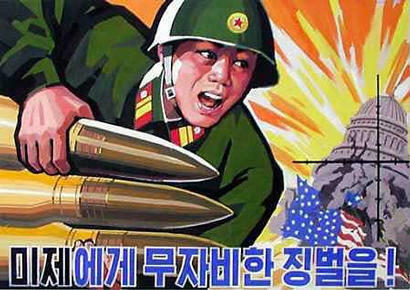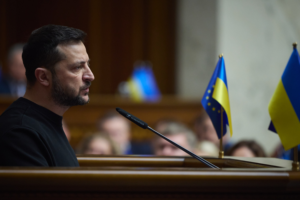Anyone following North Korean statements for the first time might be forgiven for thinking that the world came extremely close to witnessing a major war, several times over the past few weeks. On July 24 the DPRK foreign ministry announced it would respond to joint American and South Korean military exercises with “powerful nuclear deterrence”, saying the drills amounted to a provocation that would prompt a “retaliatory sacred war.” Days later, North Korea said it would have to “bolster its nuclear deterrent” in a “more advanced way” to cope with the increasing nuclear threat posed by the U.S. Then, in response to South Korea’s August anti-submarine exercise in the West Sea, Pyongyang threatened a “strong physical retaliation”, adding that if South Korea attacked it during the drills it would invite a “most powerful retaliation”. This week, after firing a volley of artillery shells into waters near South Korea, the North Koreans threatened to use their nuclear deterrent to show "what a real war is like" - if it deemed such action necessary. As of yet though, there has been no sign of a new war, no indication of a third nuclear test, and no mobilization of forces north of the DMZ.
The fact North Korea’s belligerent rhetoric has so far yet to articulate itself into reality comes as no surprise to many. As Pyotr Razvin from the Diplomatic Academy of the Russian Foreign Ministry explains, “North Korea has been threatening to spill seas of blood and destroy imperialists and their marionettes for several decades. I think they could not have kept silent in their current position and they could not have approved of the maneuvers. They had to say something. Now what do they say? They threaten.” This is presumably why one report suggests that most young people in the ROK remain unconcerned about North Korea - even despite the recent increase in tension caused by the sinking of the Cheonan. Indeed, with there having been such a high frequency of North Korean threats over the past decades it is relatively easy to see why many disregard them so easily. But is there a risk involved with assuming that the DPRK’s rhetoric will rarely articulate itself beyond words?
Anyone following North Korean statements for the first time might be forgiven for thinking that the world came extremely close to witnessing a major war, several times over the past few weeks. On July 24 the DPRK foreign ministry announced it would respond to joint American and South Korean military exercises with “powerful nuclear deterrence”, saying the drills amounted to a provocation that would prompt a “retaliatory sacred war.” Days later, North Korea said it would have to “bolster its nuclear deterrent” in a “more advanced way” to cope with the increasing nuclear threat posed by the U.S. Then, in response to South Korea’s August anti-submarine exercise in the West Sea, Pyongyang threatened a “strong physical retaliation”, adding that if South Korea attacked it during the drills it would invite a “most powerful retaliation”. This week, after firing a volley of artillery shells into waters near South Korea, the North Koreans threatened to use their nuclear deterrent to show "what a real war is like" - if it deemed such action necessary. As of yet though, there has been no sign of a new war, no indication of a third nuclear test, and no mobilization of forces north of the DMZ.
The fact North Korea’s belligerent rhetoric has so far yet to articulate itself into reality comes as no surprise to many. As Pyotr Razvin from the Diplomatic Academy of the Russian Foreign Ministry explains, “North Korea has been threatening to spill seas of blood and destroy imperialists and their marionettes for several decades. I think they could not have kept silent in their current position and they could not have approved of the maneuvers. They had to say something. Now what do they say? They threaten.” This is presumably why one report suggests that most young people in the ROK remain unconcerned about North Korea - even despite the recent increase in tension caused by the sinking of the Cheonan. Indeed, with there having been such a high frequency of North Korean threats over the past decades it is relatively easy to see why many disregard them so easily. But is there a risk involved with assuming that the DPRK’s rhetoric will rarely articulate itself beyond words?
Try unlimited access
Only $1 for four weeks
-
Unlimited access to all of NK News: reporting, investigations, analysis
-
Year-one discount if you continue past $1 trial period
-
The NK News Daily Update, an email newsletter to keep you in the loop
-
Searchable archive of all content, photo galleries, special columns
-
Contact NK News reporters with tips or requests for reporting
Get unlimited access to all NK News content, including original reporting, investigations, and analyses by our team of DPRK experts.
Subscribe
now
All major cards accepted. No commitments – you can cancel any time.











